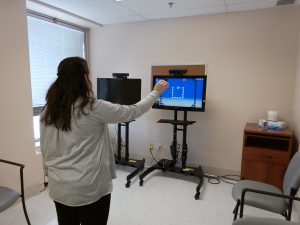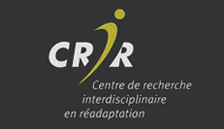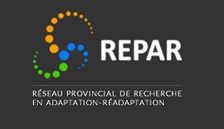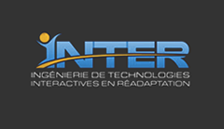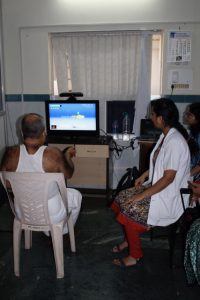
Technology offers new approaches for rehabilitation of people after a stroke. ‘Exergames’ is using videogame-like activities for the rehabilitation of arms, legs, balance and posture. One such system is the Jintronix Wave, which uses a 3D camera to track movements of the body. It provides many activities that involve the arms and legs, specifically for the rehabilitation of people with stroke. We collaborated with Jintronix to evaluate their exergames system in a project funded by Grand Challenges Canada, with clinicians and individuals with stroke in India and Canada. Other projects, in collaboration with Dahlia Kairy (University of Montreal) looked at using the Jintronix Wave to provide telerehabilitation at home.
We collaborated with the stroke unit at the Jewish Rehabilitation Hospital (part of CISSS Laval, Laval, Canada) to create an exergames room. The idea is to provide, through the exergames room, extra hours of therapy to stroke patients; that is, in addition to the regular therapy that they receive (physical, occupational and speech therapy). Stroke patients use the activities in the exergames room under the supervision of trained professionals. Feedback about the exergames room has been extremely positive, both from the point of view of individuals with stroke and their clinicians.
We are currently running the SUPER project (PerSonalized Upper Extremity Rehabilitation for persons with moderate and severe impairments due to stroke). This intervention combines robotics-assisted activities and exergames.
